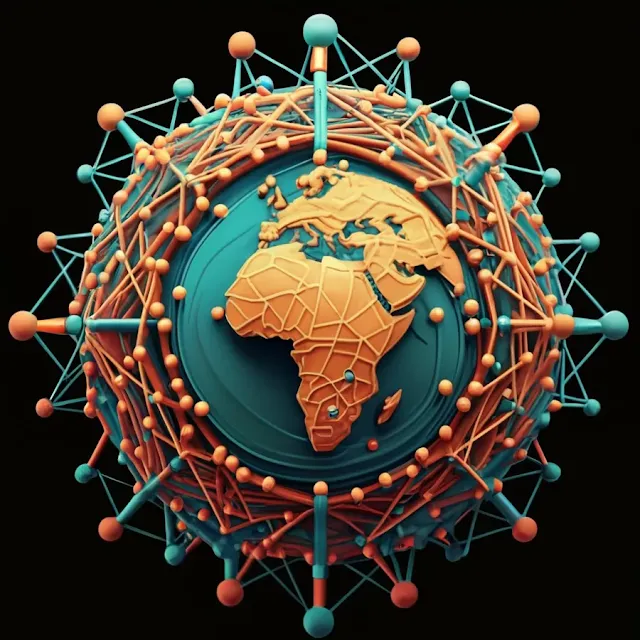AI for Social Good: Leveraging Artificial Intelligence to Alleviate Global Challenges like Poverty and Hunger
2. The Role of AI in Tackling Poverty
2.1 Understanding Poverty Through Data
2.2 AI-Powered Economic Empowerment
2.3 Enhancing Access to Education
3. AI's Impact on Hunger and Food Security
3.1 Precision Agriculture: Revolutionizing Farming
3.2 Supply Chain Optimization for Food Distribution
3.3 Combating Food Waste with AI
4. Healthcare and AI: A Key Player in Social Well-being
4.1 AI in Disease Prediction and Prevention
4.2 Improving Healthcare Access Through Telemedicine
4.3 AI in Drug Discovery: Accelerating Progress
5. AI-Driven Environmental Conservation
5.1 Monitoring and Combating Climate Change
5.2 Biodiversity Conservation with AI
6. AI-Powered Disaster Response and Recovery
6.1 Early Warning Systems
6.2 Efficient Resource Allocation
6.3 Post-Disaster Recovery Planning
7. Ethical Considerations in AI for Social Good
8. The Future of AI in Addressing Global Challenges
9. Conclusion
1. Introduction
Artificial Intelligence, or AI, has emerged as a powerful tool with the potential to address some of the most pressing global challenges. This blog explores the profound impact of AI on social well-being, focusing on its role in alleviating poverty and hunger. From economic empowerment to precision agriculture, AI is proving to be a game-changer in the quest for a better world.
2. The Role of AI in Tackling Poverty
2.1 Understanding Poverty Through Data
One of the first steps in combating poverty is understanding its root causes. AI, with its ability to analyze vast amounts of data, enables a deeper understanding of the complex factors contributing to poverty. From unemployment patterns to demographic insights, AI equips policymakers with the knowledge needed to design targeted interventions.
2.2 AI-Powered Economic Empowerment
AI is instrumental in creating opportunities for economic empowerment. Through smart algorithms, it identifies potential markets and sectors that can drive growth. This not only stimulates job creation but also fosters entrepreneurship, contributing to sustainable economic development.
2.3 Enhancing Access to Education
Education is a key catalyst for breaking the cycle of poverty. AI facilitates personalized learning experiences, adapting to individual needs and capabilities. Moreover, it aids in designing efficient education systems, ensuring that resources are allocated where they are needed most.
3. AI's Impact on Hunger and Food Security
3.1 Precision Agriculture: Revolutionizing Farming
AI is transforming agriculture through precision farming techniques. By analyzing data from sensors, satellites, and drones, AI provides farmers with insights on optimal planting times, irrigation schedules, and crop health. This not only boosts yields but also minimizes resource wastage.
3.2 Supply Chain Optimization for Food Distribution
Efficient food distribution is crucial for addressing hunger. AI optimizes supply chains, predicting demand, and ensuring that food reaches its destination in the most cost-effective and timely manner. This is particularly vital in reducing food shortages and ensuring that no one goes hungry.
3.3 Combating Food Waste with AI
A substantial amount of the global food supply ends up being squandered. AI intervenes by monitoring and managing food production and distribution processes. Smart algorithms predict expiration dates, enabling better inventory management and reducing food waste.
4. Healthcare and AI: A Key Player in Social Well-being
4.1 AI in Disease Prediction and Prevention
AI analyzes health data to identify patterns and predict disease outbreaks. This early warning system allows for prompt intervention and containment, preventing the spread of diseases and ultimately saving lives.
4.2 Improving Healthcare Access Through Telemedicine
In remote areas where access to healthcare is limited, AI facilitates telemedicine. Through virtual consultations and diagnostic tools, individuals can receive medical advice and treatment without the need to travel long distances.
4.3 AI in Drug Discovery: Accelerating Progress
The conventional approach to drug discovery is both laborious and financially burdensome. AI expedites this process by analyzing vast datasets to identify potential drug candidates, significantly reducing the time and resources required for drug development.
5. AI-Driven Environmental Conservation
5.1 Monitoring and Combating Climate Change
The looming specter of climate change presents a grave peril to our planet. AI is employed in monitoring environmental changes, analyzing climate data, and predicting future trends. This information is invaluable for crafting effective strategies to mitigate the impact of climate change.
5.2 Biodiversity Conservation with AI
AI aids in monitoring and protecting biodiversity. Through image recognition and analysis, AI can identify endangered species, track their populations, and assess the effectiveness of conservation efforts.
6. AI-Powered Disaster Response and Recovery
6.1 Early Warning Systems
Natural disasters can have devastating effects. AI plays a crucial role in early warning systems, analyzing data to predict disasters and issuing timely alerts. This allows for evacuation and resource mobilization, minimizing casualties.
6.2 Efficient Resource Allocation
During a disaster, resources must be allocated strategically. AI helps in optimizing resource distribution, ensuring that aid reaches affected areas promptly and efficiently.
6.3 Post-Disaster Recovery Planning
After a disaster, AI assists in recovery planning by analyzing the extent of damage and prioritizing reconstruction efforts. This speeds up the recovery process, helping communities rebuild and regain stability.
7. Ethical Considerations in AI for Social Good
While AI holds immense potential for social good, ethical considerations must be at the forefront of its deployment. Issues such as bias in algorithms, data privacy, and transparency need careful attention to ensure that AI interventions are fair and just.
8. The Future of AI in Addressing Global Challenges
The trajectory of AI for social good looks promising. Continued advancements in machine learning, robotics, and data analytics will further enhance AI's capacity to address global challenges. Collaboration between governments, businesses, and non-profits is crucial for maximizing the positive impact of AI.
9. Conclusion
Artificial Intelligence, as a tool for social good, is proving to be a transformative force in addressing global challenges like poverty and hunger. From empowering economies to revolutionizing agriculture and healthcare, AI's potential is vast. As we navigate the future, it is essential to ensure that AI is ethically deployed, with a focus on inclusivity and sustainability, to create a better world for all.



